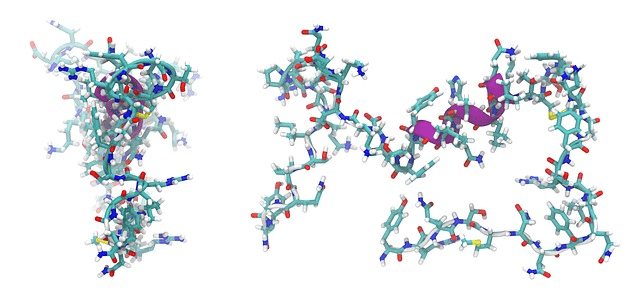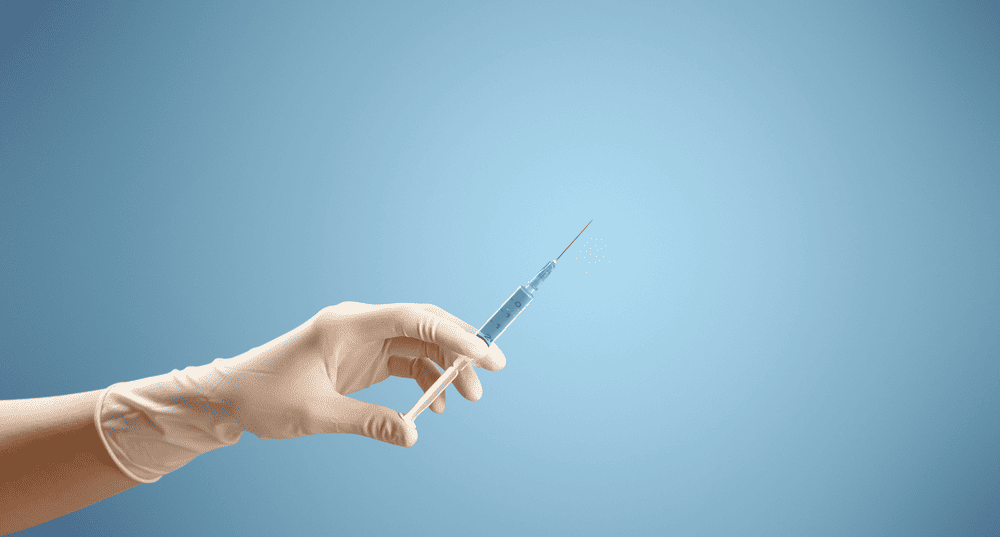You’ve probably heard a lot about peptides lately as the latest anti-aging craze. Peptide therapy is transforming the way we think about aging and how we can slow down the clock.
Forget expensive creams and invasive treatments, peptide therapy offers a natural solution to support your skin and body as you get older.
Peptides are short chains of amino acids, the building blocks of proteins in our body. When applied to the skin or taken orally, peptides can stimulate collagen production, cell turnover, and healing.
The results are smoother, firmer skin, reduced wrinkles, and an overall rejuvenated appearance. The best part is that peptide therapy delivers real results you can see and feel within 4 to 6 weeks.
Keep reading to discover some of the most powerful peptides like Matrixyl, Argireline, and GHK-Cu and how they can turn back the hands of time. The future of anti-aging is here, and its peptides.
What Are Peptides and How Do They Work?

Peptides are short chains of amino acids, the building blocks of proteins in our body. There are naturally occurring peptides such as oxytocin and glutathione. But peptide therapy uses specific peptides to produce desired effects like reducing inflammation, boost cognitive function, improving immunity, improving metabolic function, increasing muscle mass, or stimulating collagen production.
How Peptide Therapy Works
Peptides work by signaling your cells to perform certain actions or biological functions such as stimulating new cell growth or reducing inflammation. When administered, peptides travel through the bloodstream, binding to cell receptors and activating cellular pathways.
The effects depend on the specific peptide used. For example, some peptides boost growth hormone levels, others block inflammatory messengers, while some may activate stem cells.
Peptide therapy can take weeks or months to achieve noticeable results as your cells need time to respond, produce new proteins, and your body incorporates changes. However, some peptides act more quickly, like those reducing inflammation. The effects tend to build over multiple treatments as well. Examples of therapeutic peptides, and their benefits include:
-
BPC-157: Reduces inflammation and speeds wound healing.
-
DIHEXA: improves cognitive function
-
Epitalon: Stimulates telomerase, the enzyme that preserves cells and slows the aging process.
-
Thymosin Alpha-1: Boosts immune function and fights inflammation.
-
Sermorelin: Stimulates muscle growth, hormone release for muscle gain, improves sexual desire, and aids with weight loss.
Peptide therapy offers a natural way to enhance your health and slow age-related decline. While still considered experimental, peptides may hold promise for anti-aging, athletic performance, and improved quality of life as an alternative to drugs or surgery.
By signaling your own cells into action, peptides tap into the human body’s innate ability for self-healing and balance. The future of anti-aging medicine may indeed be here.
The Benefits of Peptide Therapy

Peptide therapy involves using short chains of amino acids called peptides to make hormones that help slow down aging and promote healing in the body. When administered, peptides work to boost cell communication and regulate various functions like tissue repair, immune response, and collagen production.
The benefits of peptide therapy are numerous. One of the biggest benefits is improved skin health and a more youthful appearance. Peptides like Matrixyl and Argireline are used to reduce fine lines and wrinkles by increasing collagen production and relaxing facial muscles. After a few treatments, you’ll start noticing tighter, firmer skin with an all-over glow.
Peptide therapy also helps build muscle and boost weight loss. Peptides such as CJC-1295 and Ipamorelin are used to increase growth hormone levels which aids in fat loss and lean muscle gain. When combined with exercise, peptides can enhance performance overall health, and recovery.
Additional benefits of peptide therapy include improved mood and sleep, reduced inflammation, and heightened libido and sexual performance. The effects of treatment can last for several months up to a couple of years, depending on the peptides used and personal factors.
While peptide therapy produces natural-looking results with minimal downtime, multiple treatments are typically needed to achieve optimal outcomes.
If slowing down aging and improving health, wellness, and appearance appeals to you, peptide therapy may be worth considering. This innovative treatment helps you look and feel your best from the inside out using the natural building blocks of your own body.
Popular Peptides Used in Anti-Aging Therapy

Popular peptides used in anti-aging therapy include:
GHRP-6
Growth Hormone Releasing Peptide 6 (GHRP-6) stimulates the pituitary gland to release growth hormone. Growth hormone helps build muscle, boost fat, aid weight loss, and strengthen bones. GHRP-6 can help reduce body fat, increase lean muscle mass, improve skin elasticity, and strengthen hair and nails. You may notice results in 3-6 months with GHRP-6 therapy.
Ipamorelin
Ipamorelin is a human growth hormone releasing peptide that stimulates the pituitary gland to produce more growth hormone. It offers similar anti-aging benefits as GHRP-6, such as increased muscle mass, fat loss, and improved skin tone. However, ipamorelin does not stimulate appetite like GHRP-6. Results may be seen within 3 months.
Sermorelin
Sermorelin is one of 6 human growth hormones. It stimulates the pituitary gland to increase growth hormone production. It offers comparable benefits to GHRP-6 and ipamorelin, including improved muscle mass, decreased body fat, and younger-looking skin. Sermorelin tends to have a slower, more gradual onset of action and may take 6 months to a year of therapy to achieve significant results.
Thymosin Alpha-1
Thymosin Alpha-1 (Tα1) is a peptide that stimulates the production of T cells, which are essential for a strong immune system. Tα1 therapy can enhance immune function, increase bone density, improve cognition, and slow signs of skin aging. Benefits are often noticed within 3 to 6 months of treatment.
As you can see, there are several peptide options for anti-aging therapy. The effects tend to build over months and years of use, but many people report noticeable improvements in body composition, skin health, energy levels, and other age-related factors within 3 to 6 months of starting a peptide regimen. Talk to your doctor about peptide therapy to see if it may be right for you.
What to Expect During Peptide Treatments

What to Expect During Peptide Treatments
As always, it’s important to consult your healthcare provider before using any health product. Peptide therapy involves a series of injections, typically administered by a doctor, to introduce peptides into your body. The number of treatments needed varies based on your individual needs and goals.
Expect to come in for injections 2-3 times a week for the first month or so. After that, maintenance treatments are usually needed every 4-6 weeks to sustain results.
The actual injection process only takes a few minutes. The collagen peptides are injected into the fatty tissue below the skin, similar to Botox or filler treatments. You may feel a slight pinching sensation, but the procedure is relatively painless.
There are no major side effects, though you may experience some minor redness, swelling, or bruising at the injection site which will clear up quickly.
Peptide therapy is a progressive treatment, so you won’t see immediate results after one session. It can take 4 to 6 weeks of regular treatments before you start to notice visible changes in your skin, hair, muscles, or other areas being targeted.
The full effects may take 3-6 months as your body adjusts to the peptides and they build up in your tissues. However, many people report noticing gradual improvements in skin texture, wrinkle reduction, hair growth, increased muscle mass, improved energy levels, and better mood within the first month or two.
The key is to stick with the initial recommended schedule to allow the peptides to fully integrate into your body. Be patient through the process and try not to get discouraged if results are not instantaneous.
Peptide therapy helps support your body’s natural regenerative abilities. When used consistently over time, peptides have the potential to produce longer-lasting results compared to many other anti-aging treatments.
Summary
So there you have it, an in-depth look at the exciting new world of peptide therapy and anti-aging. Peptides offer a natural way to boost collagen, tighten skin, reduce inflammation, and promote cell health.
While peptide therapy may seem complex, at its core it’s about giving your body and cells the building blocks they need to function at their best. Whether you want to slow down aging, reduce fine lines, improve muscle tone or boost energy, peptide treatments can be tailored to meet your specific needs.
The future of anti-aging is here, are you ready to embrace it? Talk to your healthcare provider about peptide therapy today and see just how much better you can feel and look with the help of these powerful molecules. The fountain of youth may not be a myth after all.
Frequently Asked Questions About Peptide Anti-Aging Therapy
How long does peptide therapy take to work?
Peptide therapy is not an overnight fix. While some people may notice subtle improvements within a few weeks, peptide therapy typically takes 3-6 months of consistent use to achieve optimal results. The effects are gradual, as peptides work to stimulate your body’s own natural cellular processes.
What does peptide therapy do?
Peptide therapy is a therapeutic approach aimed at replenishing peptides in order to stimulate the body’s cellular regeneration systems, serving as a treatment option for particular health conditions. Peptides are typically administered directly into the bloodstream through subcutaneous injections, but they can also be applied topically as creams, delivered as nasal sprays, or taken orally.
What are the benefits of peptide therapy?
Peptide therapy has numerous benefits including easing joint and muscle pain, helping with weight loss, improving sexual function, providing pain relief, and providing better well-being.
Are peptides helpful for healing injuries?
Peptides play a pivotal role in enhancing the healing process and facilitating tissue repair through several key mechanisms, with the primary ones being the stimulation of cell growth, the reduction of inflammation, and the promotion of angiogenesis, which is the formation of new blood vessels.
